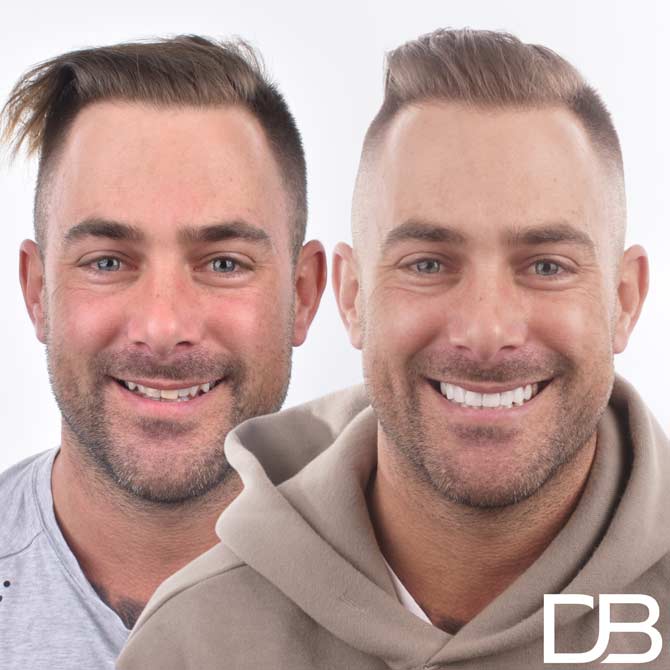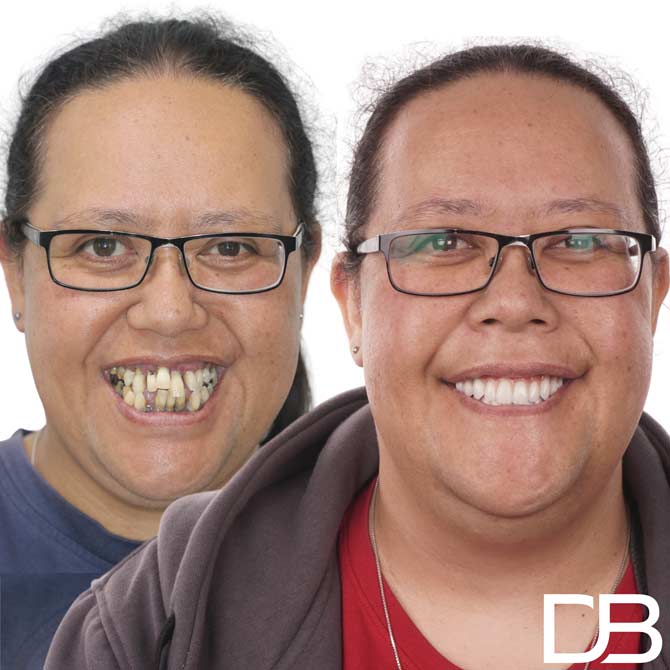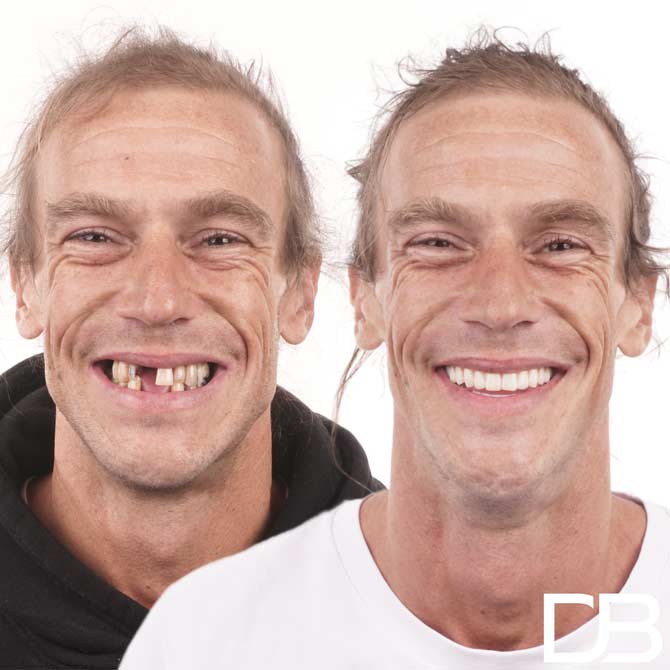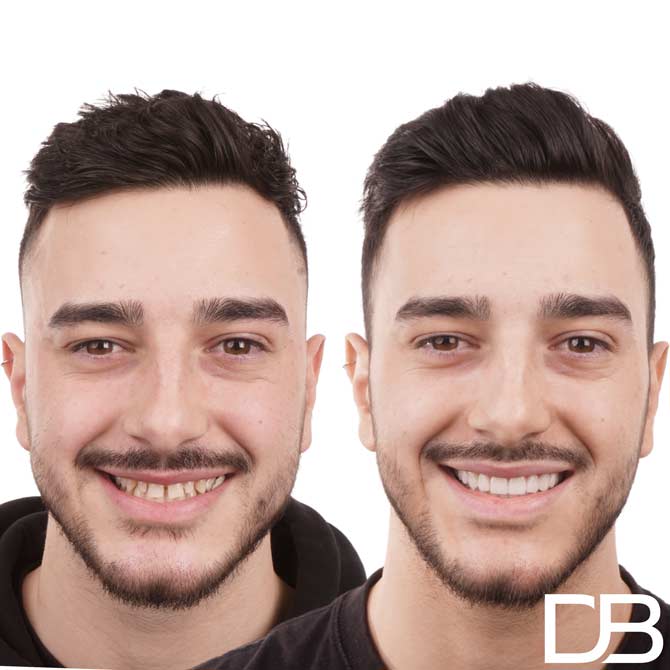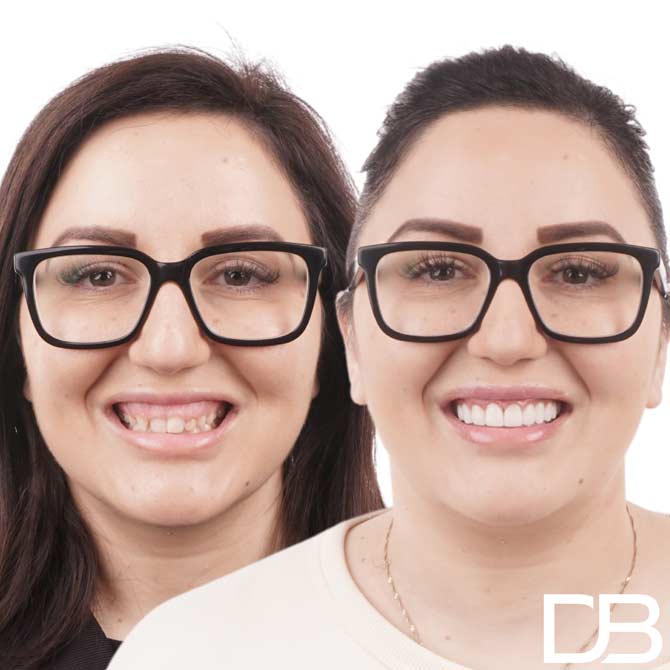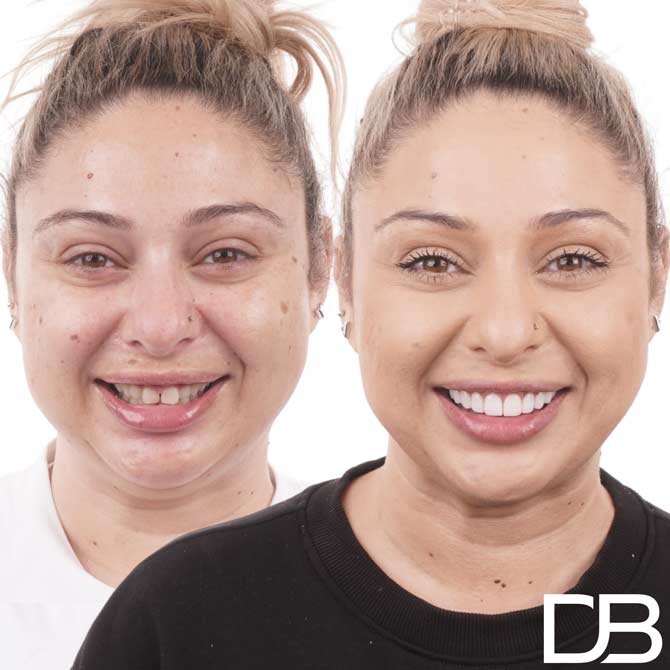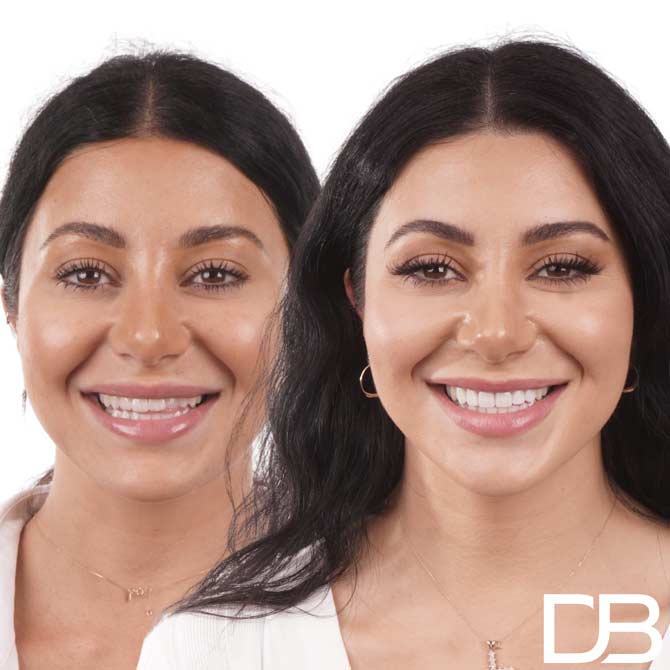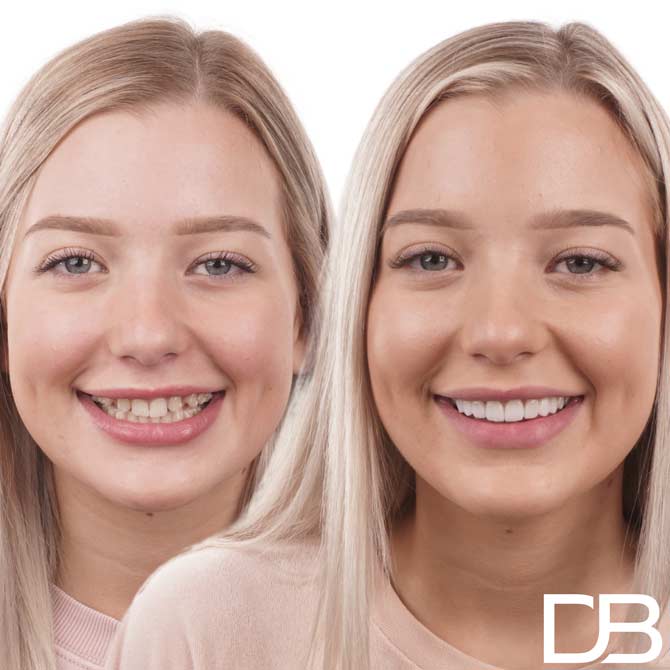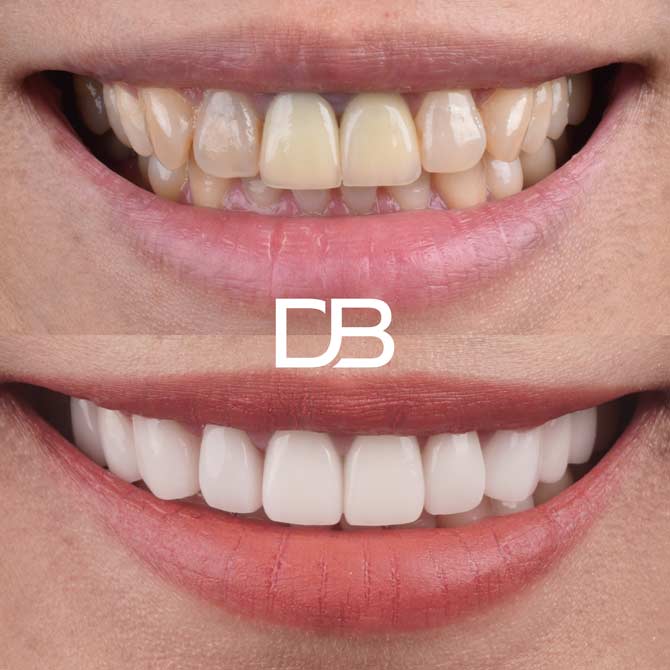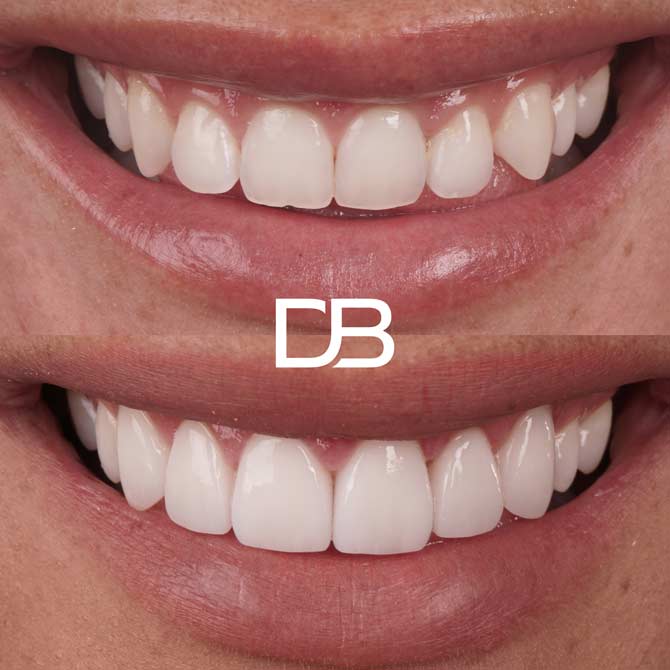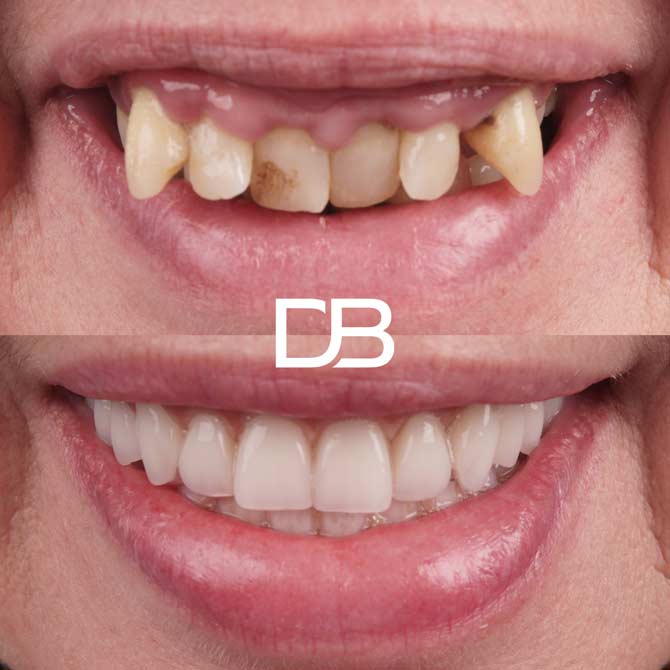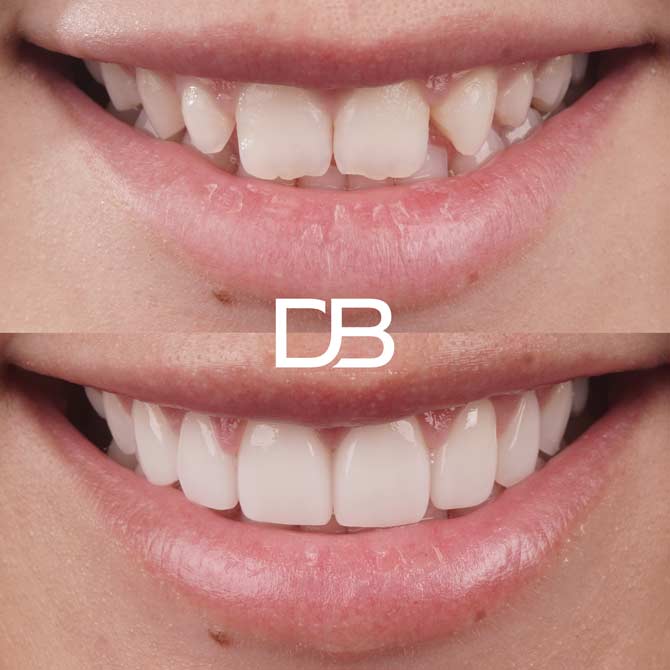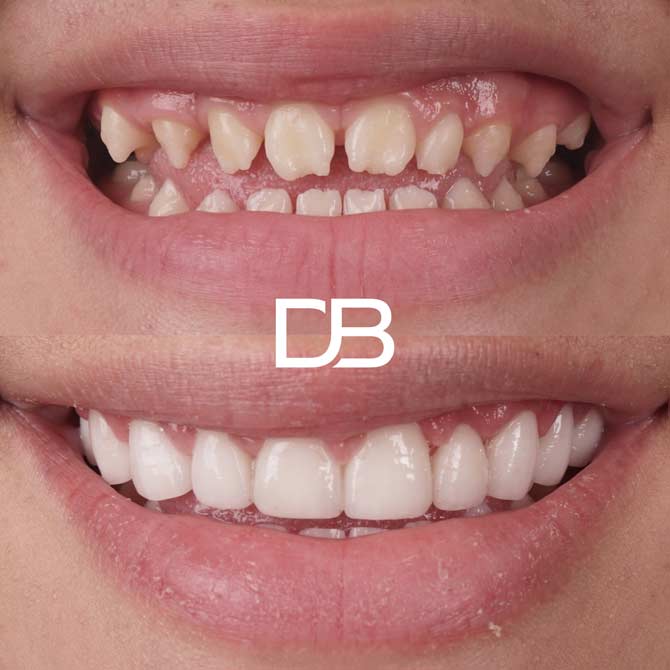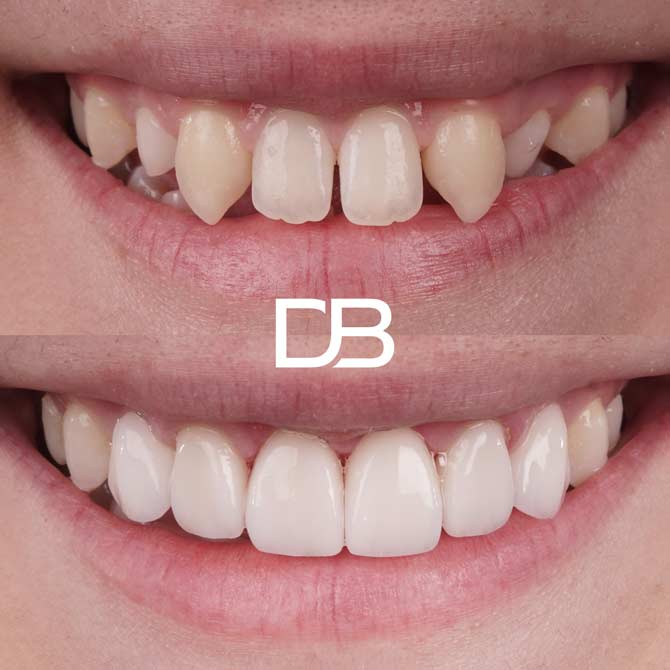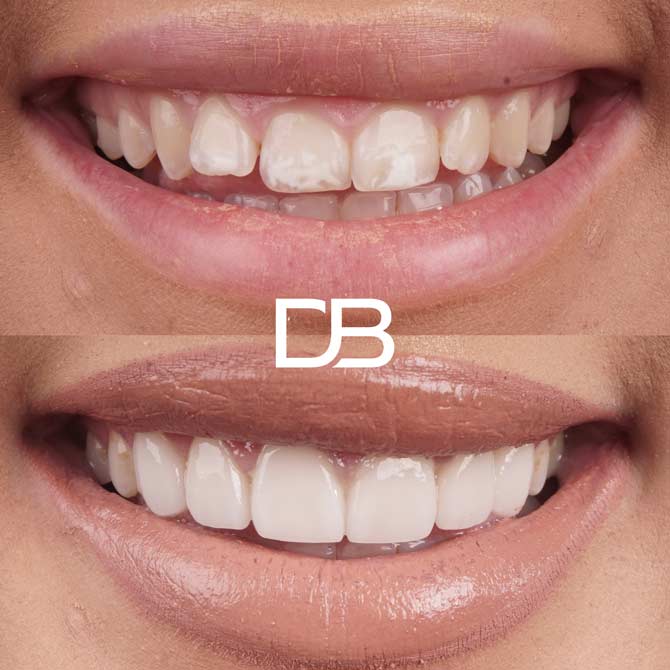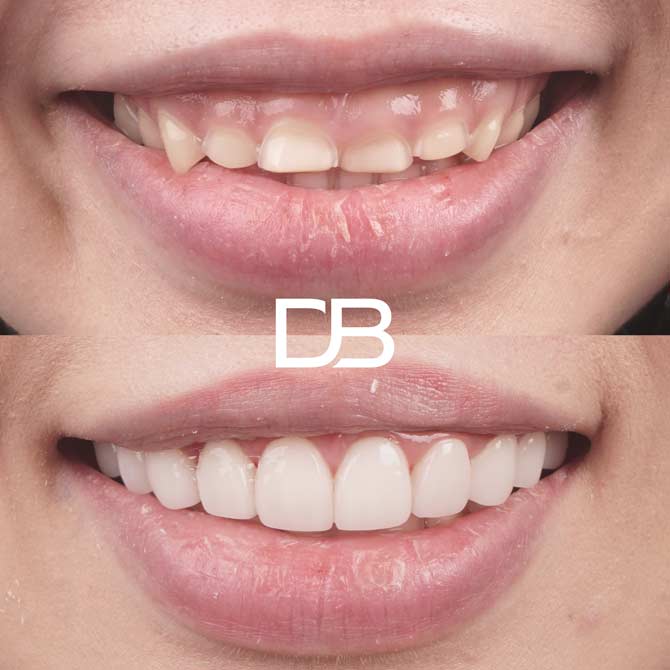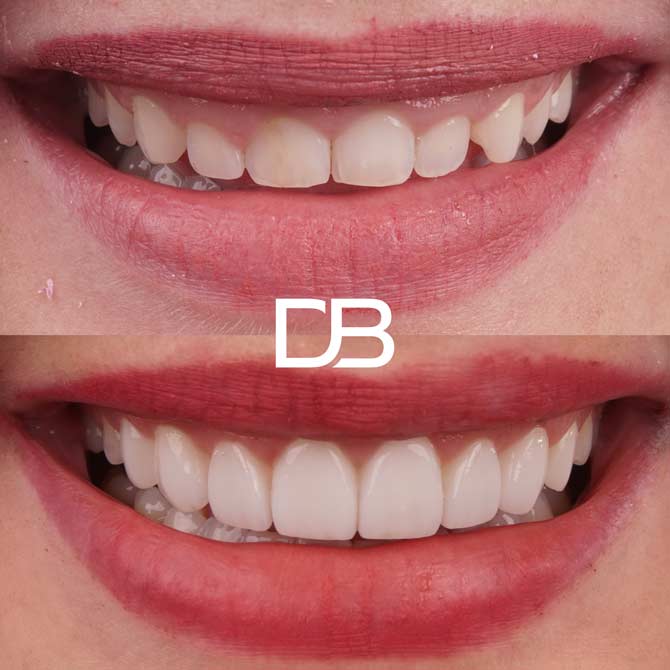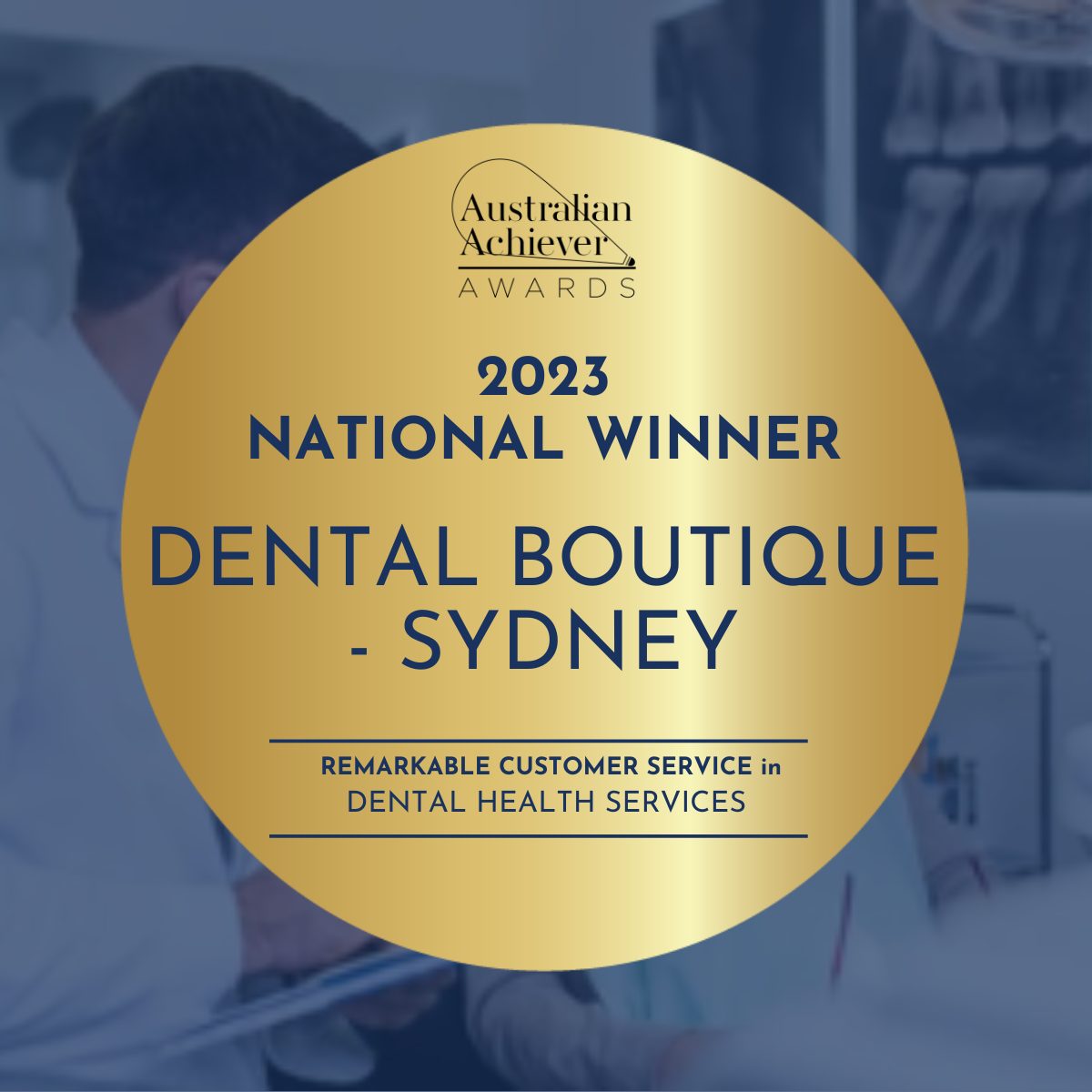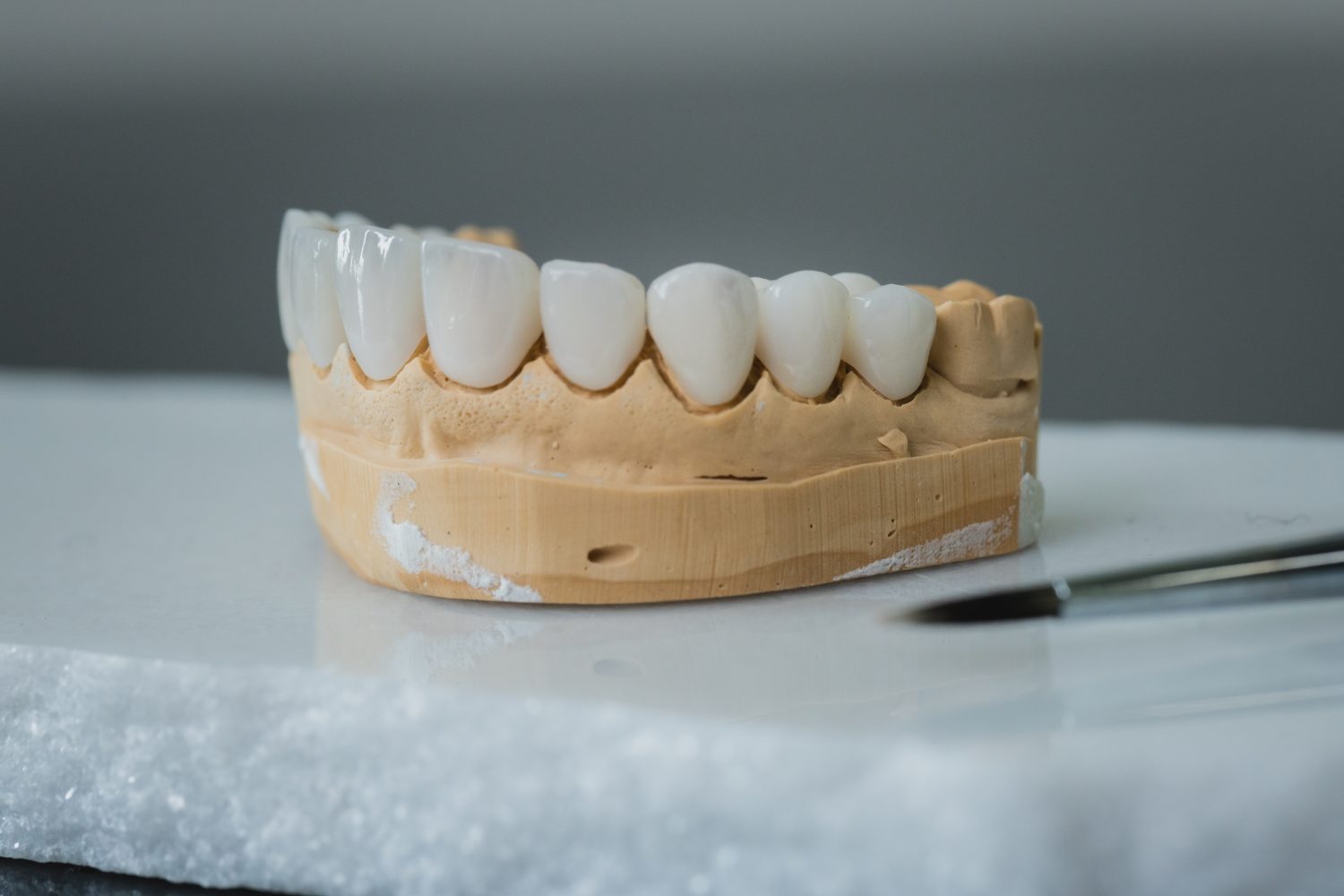
We’ve all seen the posts and pictures when we google veneers — teeth that have been shaped into little pegs.
This continues to be the biggest barrier for people who are considering veneers, but are veneers bad for your teeth? The answer to this question depends on several factors.
In this guide, we’ll explain why veneers are not bad for your teeth when applied correctly by a skilled dentist.
Do teeth need to be shaved for veneers?
First of all, what are veneers?
Veneers are a form of tooth bonding, where tooth-like shells are bonded to the tooth surfaces to improve their appearance.
There are two main types of veneers — composite and porcelain. Regardless of the type of veneer used, there is usually some form of shaving required to prepare the tooth surface.
This procedure is what often leads people to question whether or not veneers are bad for your teeth.
In short, this tooth shaving is not harmful to the tooth, provided it is done correctly; read: only a very thin layer of enamel is shaved.
The amount of shaving performed by the cosmetic dentist will depend on their expertise. The clinician’s experience is the most important factor for ensuring the teeth are shaved savely prior to veneer application.
It’s always easier for the clinician to shave more of the tooth than less, as removing more of the tooth makes it easier to create and bond the veneer to the tooth’s surface. This also makes the life of the ceramisist easier, too.
However, this can be detrimental to the health of the teeth. In this case — if the practitioner shaves more enamel than is necessary — veneers are bad for your teeth.
At Dental Boutique, each cosmetic dentist is hand-picked and highly trained to only shave the teeth as much as is absolutely necessary to achieve the desired aesthetic outcome.
So, how do we know how much of your tooth will need to be shaved? It all comes down to the pre-planning and smile design.
We make a blueprint of the smile design so we can accurately measure how much shaving is required on each of the teeth, and in some cases, some teeth won’t need to be shaved at all.
Dentists who skip the pre-planning stage or lack experience may shave too much of the teeth, which can cause unnecessary complications.
What do dentists do to your teeth before veneers?
Provided you visit an experienced, highly-skilled dentist, the planning and application of your porcelain veneers will be comprehensive and detailed to ensure the best results.
At Dental Boutique, we begin your smile makeover by taking you through a thorough consultation with our expert dentists. Here, your dentist will discuss your dental history and aesthetic goals.
We’ll then discuss your options and put together a tailored treatment plan for you. Our dentists will look at how you speak, bite and smile, and take into account what your expectations are for your new smile. This will help our dentists design a smile that is aesthetically beautiful and functional.
Next, your dentist will scan your teeth and send this information to the ceramisist who will design your veneers.
Once your smile design is complete, your dentist will apply temporary veneers to your teeth so that you can try out your new smile. You can provide input on the shape, colour and feel of your smile, and from here the cermaisist will begin on your final veneers.
On your next visit, your dentist will clean your teeth and begin preparing them for porcelain veneers. As mentioned, a thin layer of enamel will be removed — usually no more than 0.5mm — so that the veneers will fit comfortably on your teeth.
You will be given local anaesthetic to numb the area, and your dentist will also reshape your teeth if there are any cracks or shaping issues.
Lastly, it’s time for your final veneers! Your porcelain veneers will be crafted by our team of skilled artisans, using the finest quality European porcelain in the ceramics studio.
Your dentist will gently remove your temporary veneers and trial your porcelain veneers on your teeth before bonding them permanently to your teeth. Your dentist will make sure you’re happy with the look and feel of your veneers before cementing them in place.
The veneers will be bonded to your teeth with a special German cement, and your new smile is ready to go!
So, what do the teeth look like under the veneers?
Many people assume that porcelain and composite veneers are bad for your teeth. After all, there are many horror images online showing teeth carved down into little pegs in preparation for veneers.
As mentioned, at Dental Boutique, we aim to be as conservative as possible, so you can rest assured your teeth won’t be ground down in preparation for porcelain veneers.
When you see pictures of such on the internet, these were most likely done by inexperienced clinicians who were not familiar with the process and did not understand the principles.
Each smile is different and the amount of shaving required is different for every tooth. Remember, it all comes down to the pre-planning and smile design so that the cosmetic dentist can accurately visualise the outcome and assess the amount of shaving required to achieve that outcome.
The cosmetic dentist must also be well trained in all aspects of dentistry such as invisalign or braces, so that they can point you in the right direction if a more conservative approach is suitable.
For example, if a tooth is sticking out further than other teeth, it may be better to align this tooth back into its correct position to allow a more conservative preparation of the tooth.
The treating clinician needs to be experienced enough to guide you down the suitable path.
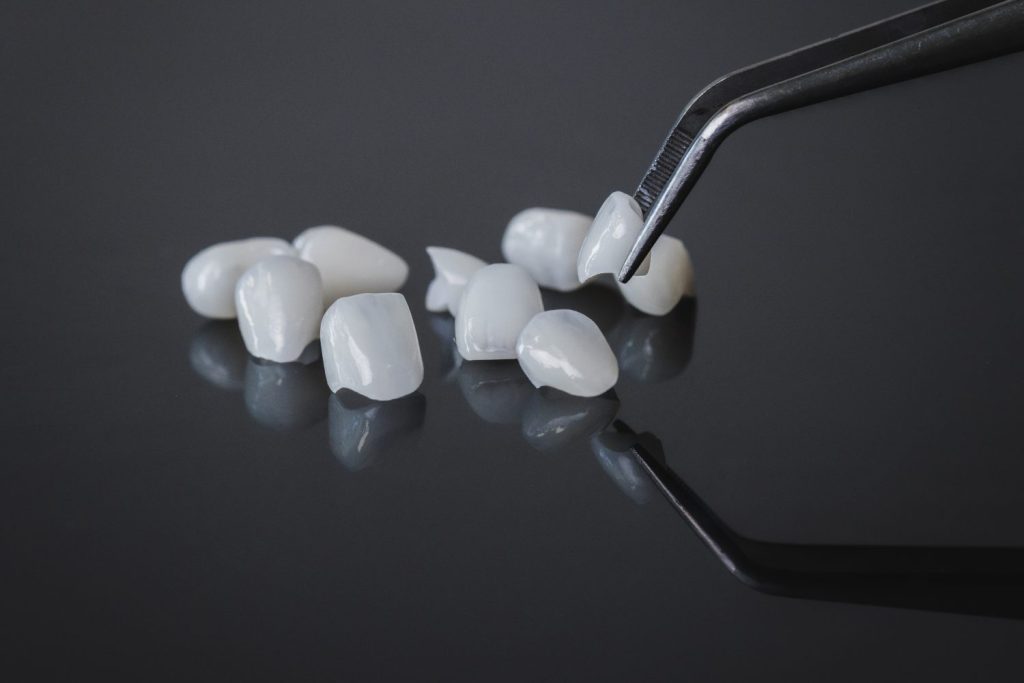
Are veneers bad for your teeth?
So, are veneers bad for your teeth?
The short answer is no — veneers are not bad for your teeth.
In fact, provided they are applied by a skilled practitioner, veneers can actually act as protection to your natural teeth.
There has been an increasing interest in dental veneers driven by the demand for aesthetics, and consequently, an increase in the development of technology and techniques for their use in aesthetic dentistry.
Porcelain veneers are bonded on to the tooth surface which reinforces the ceramic and restores the strength to the tooth.
The veneers also protect your natural teeth from staining, cracking and damage.
This bonding of the veneer is an extremely important part of the process and the success depends heavily on the technique of the clinician as well as the type of bond used.
The veneer must also be perfectly constructed such that it adapts to the prepared teeth and no gap is present when bonded on.
At Dental Boutique, only the highest quality of porcelain is used, and each veneer is hand-constructed by a master ceramist. We are also up to date with the latest studies and progress in technology, to ensure the technique as well as the choice of bond selected is supported by the literature.
While porcelain veneers don’t ruin your teeth, it’s still important to take adequate care of them.
Do your teeth rot under veneers?
Your teeth should not rot under veneers.
If your veneers are bonded properly and you maintain excellent dental hygiene, your teeth will not rot under your veneers.
However, if your veneers are not closely bonded to your natural teeth, bacteria and food can become trapped in the space between, which can cause tooth rotting.
Additionally, if you fail to take proper care of your veneers and the teeth underneath them, you may experience cavities.
Remember, the veneers are only bonded to the tooth’s surface, which means the rest of the tooth is still vulnerable to bacteria and decay.
A build up of bacteria can cause cavities, and if left untreated, cavities can cause the tooth to become too weak to support the veneer.
It’s essential to visit a skilled dentist to ensure that the veneers are bonded properly in the first place, and it is then vital to keep up with your own dental hygiene routine.
A Final Word
So, are veneers bad for your teeth?
In the right hands, the answer is no. The predictable success and longevity of dental veneers are well documented and supported by the literature.
It is important that you choose the right cosmetic dentist who has the experience and is equipped with the skills to produce the desired aesthetic outcome.
If you’re interested in learning more about veneers, you can get in touch with our team at Dental Boutique. We’d love to discuss your options with you.
Alternatively, you can book an appointment straight away to begin on your journey to a healthy, beautiful smile.

